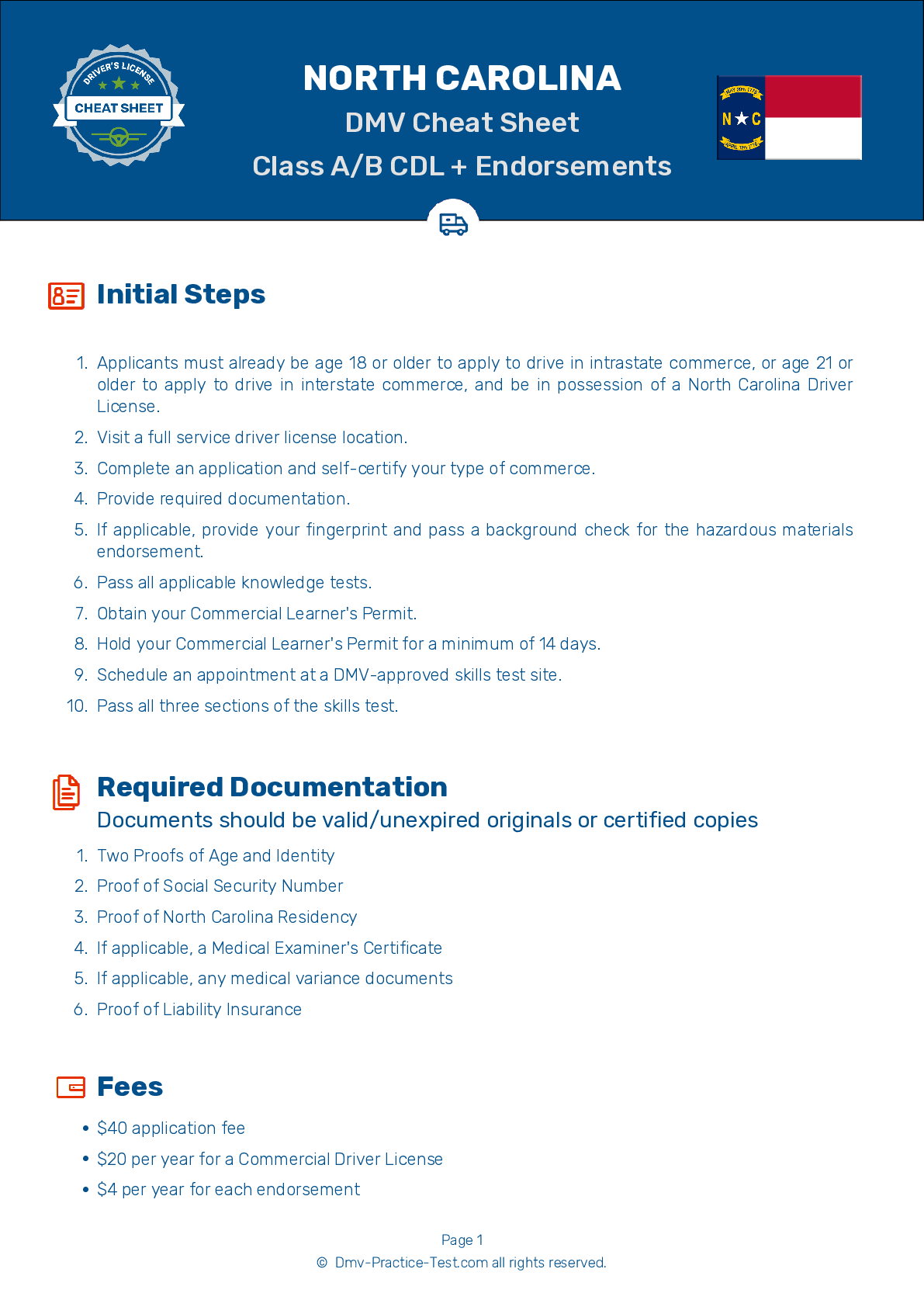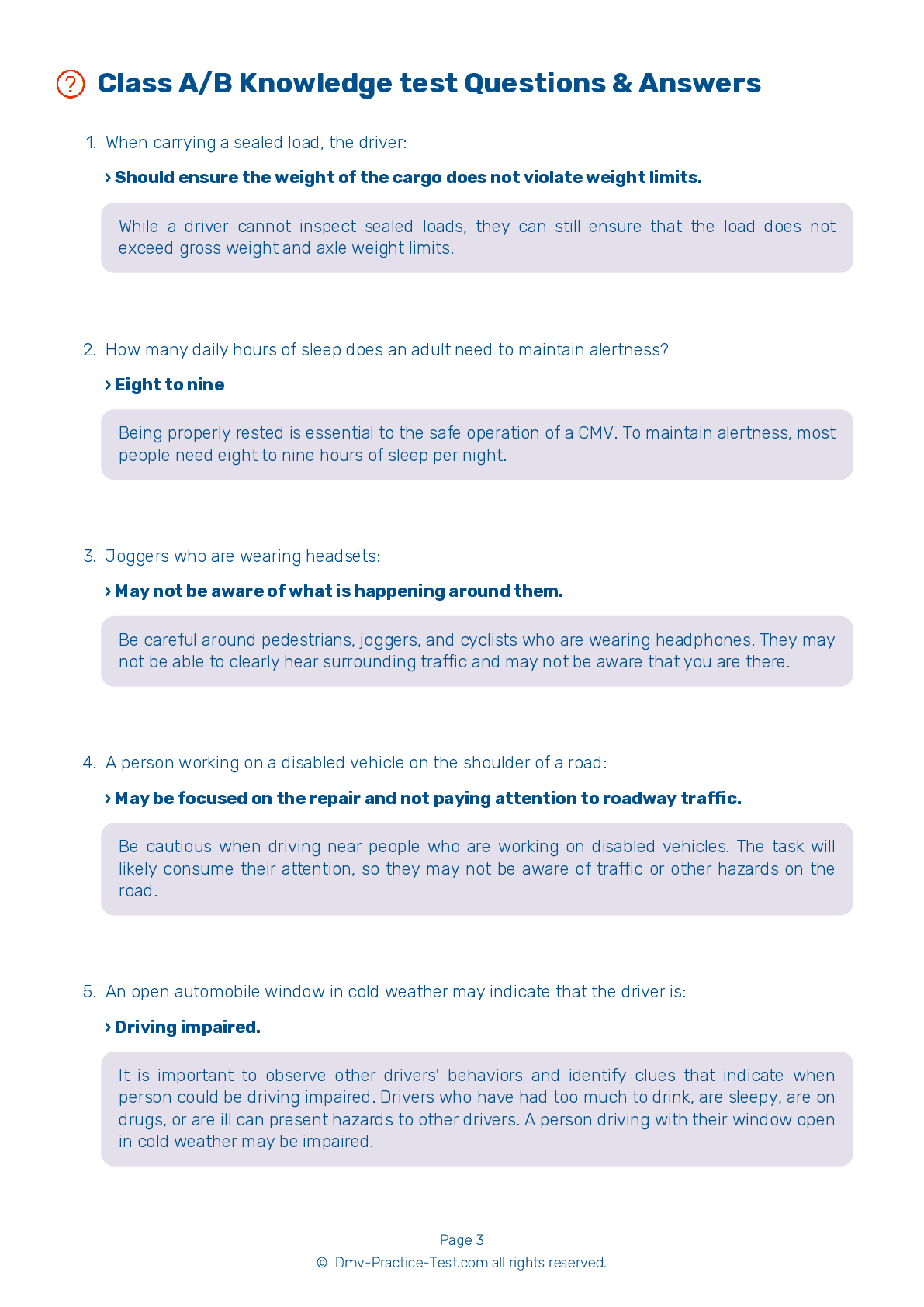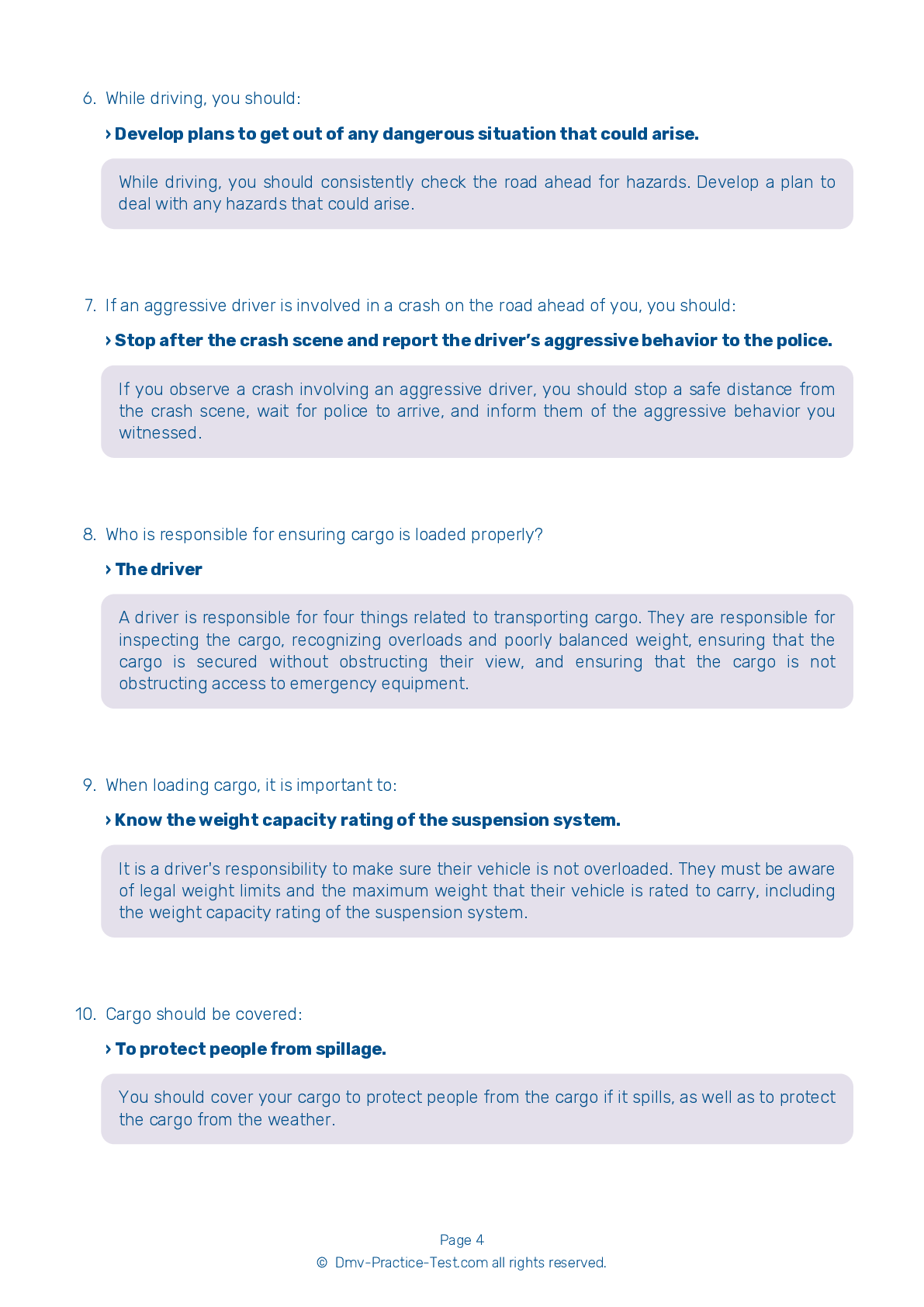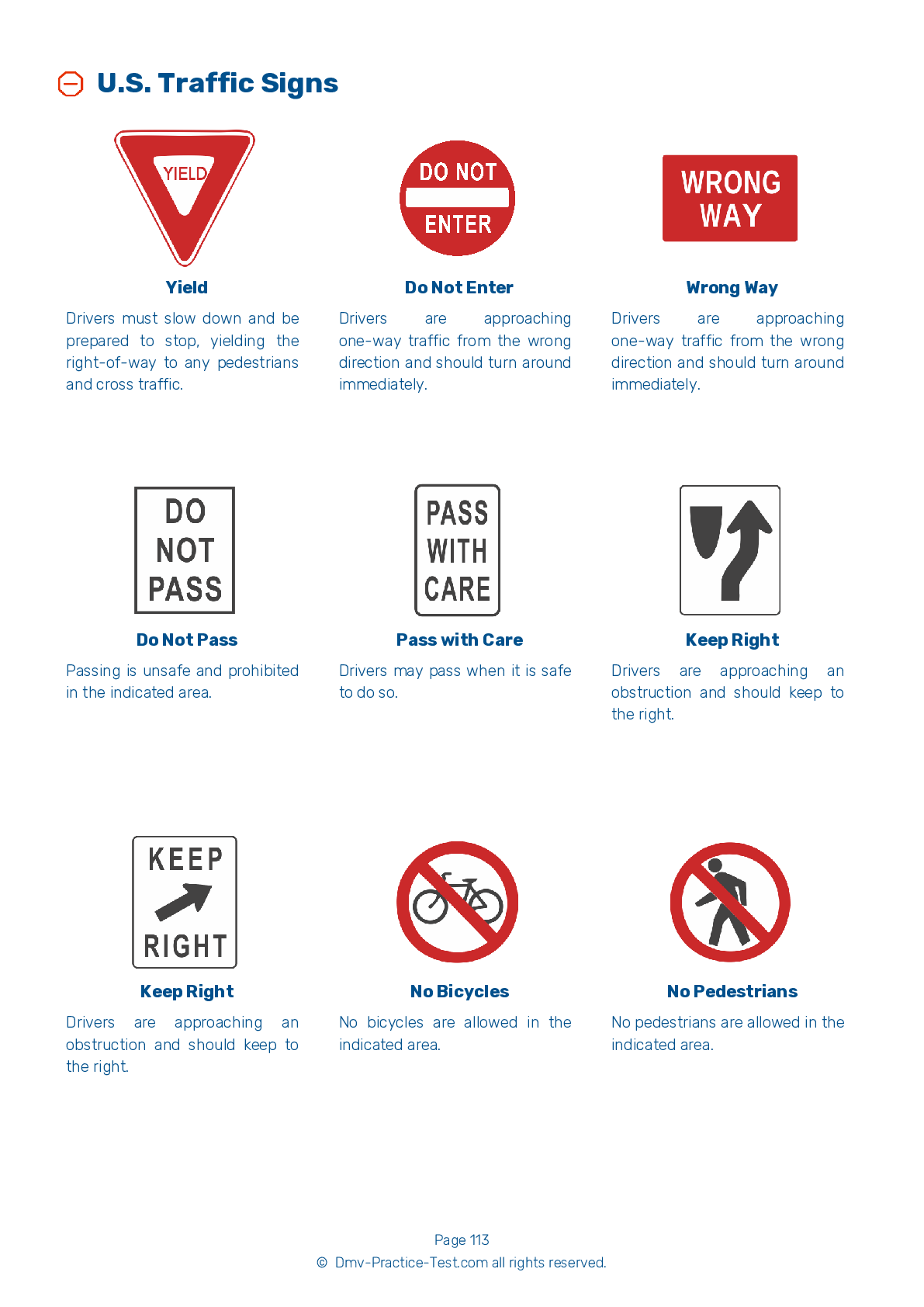Bus #1
Bus Driver Testing | North Carolina 2026 #1
Train for FREE online with our NC bus CDL test. The official exam test consists of several obligatory parts, with all of them checking your knowledge of different blocks of road rules. If you need to obtain a license in North Carolina in 2026, learn how to become a bus driver and then practice as much as possible. Free sample tests published on our website will help you check and improve your knowledge and boost your grades. Please bear in mind that DMV requirements for a bus driver may vary from state to state.
20
16
20
1 . When stopped at a railroad crossing while operating a school bus, you should:
Immediately proceed after a train has passed.
When stopped at a railroad crossing while operating a school bus, do not rely only on signals to tell you if a train is approaching. You should silence all passengers, open the front door, and look and listen for trains. After a train has passed, you should check for another train approaching from either direction before you proceed across the tracks.
2 . Drivers should try to stop ____ away from students at a bus stop.
Less than 10 feet
A school bus should stop at least 10 feet away from students who are being picked up at a bus stop. This forces the students to walk toward the bus, allowing the driver to observe their movements and better monitor their locations.
3 . Once stopped as a part of the stop/start maneuver, you should:
Park in front of a fire hydrant.
Once you have stopped as a part of the stop/start maneuver during the on-road driving skills test, you must activate your four-way flashers and shift into neutral or park. You must not block any driveways, intersections, fire hydrants, or signs.
4 . Bus stops may be changed by:
Official school bus routes and stops are established by the local school district. Drivers should never change a stop location without the written approval of an appropriate district official.
5 . During the on-road driving test, you should:
Drive in an unsafe manner.
During the on-road driving test, you must listen to and follow the directions given by the examiner. They will never ask you to drive in an unsafe manner.
6 . Before leaving a bus stop, a driver should:
Make sure students are facing the rear of the bus.
Before pulling away from a bus stop, a driver should make sure that there are no students running to catch the bus.
7 . Why should a school bus stop a short distance from students who are waiting to board?
Buses are difficult to drive.
When being stopped to load students, a school bus should stop at least 10 feet away from the waiting students. This forces the students to walk toward the bus, making it easier for the driver to keep track of their movements.
2026 North Carolina | Frequently Asked Questions
A CDL Class A license in North Carolina allows the holder to operate any combination of vehicles with a Gross Combination Weight Rating (GCWR) of 26,001 or more pounds, given the Gross Vehicle Weight Rating (GVWR) of the vehicle(s) being towed is over 10,000 pounds. This category typically includes tractor-trailers and truck and trailer combinations.
A Class A CDL (Commercial Driver's License) in North Carolina allows the holder to operate any combination of vehicles with a Gross Vehicle Weight Rating (GVWR) of 26,001 pounds or more, provided the GVWR of the vehicle(s) being towed exceeds 10,000 pounds. This typically includes tractor-trailers, truck and trailer combinations, tank vehicles, and livestock carriers.
To obtain a Class A CDL in North Carolina, you must be at least 18 years old (21 for interstate driving), have a valid North Carolina driver's license, pass a vision test, and obtain a commercial learner's permit by passing written knowledge tests. You'll also need to pass a skills test which includes a pre-trip vehicle inspection, a basic controls test, and a road test.
In North Carolina, you must be at least 18 years old to qualify for a Class A CDL license for intrastate driving (within the state). However, you need to be at least 21 years old if you plan to drive commercially across state lines (interstate driving) or carry hazardous materials.
Specific endorsements aren't required for a Class A CDL license, but they can provide additional driving privileges. For example, endorsements are available for double/triple trailers, tanker vehicles, passenger vehicles, and hazardous materials. Each endorsement requires passing a separate knowledge test and, in some cases, a skills test.
The Class A CDL skills test in North Carolina encompasses three main components: a pre-trip vehicle inspection to assess your ability to determine whether your vehicle is safe for the road, a basic controls test to evaluate your basic maneuvering skills, and a road test to validate your on-road driving ability, including left and right turns, intersections, railway crossings, and various types of roadways.
Yes, Class A CDL license holders in North Carolina may face limitations. These can include restrictions based on medical conditions, such as hearing or vision impairments, or restrictions to operating only automatic transmission vehicles. Additionally, drivers under the age of 21 are restricted to intrastate driving (within North Carolina) only.
In North Carolina, the written Class A CDL test is primarily administered in English, following federal regulations. However, accommodations may be made for applicants with limited English proficiency. It's recommended to contact the North Carolina Division of Motor Vehicles directly to inquire about any available language assistance or resources.
Yes, you can request accommodations for the Class A CDL written test in North Carolina if you have a disability. The North Carolina DMV complies with the Americans with Disabilities Act and offers reasonable accommodations to help individuals with disabilities. You should contact your local DMV office in advance to discuss your needs and arrange appropriate accommodations.
Yes, you can retake the Class A CDL written test in North Carolina if you fail on your first attempt. However, you must wait at least one day before attempting the test again. If you fail three times, you'll need to wait at least 60 days before retesting. Remember, each attempt may require a new testing fee.



